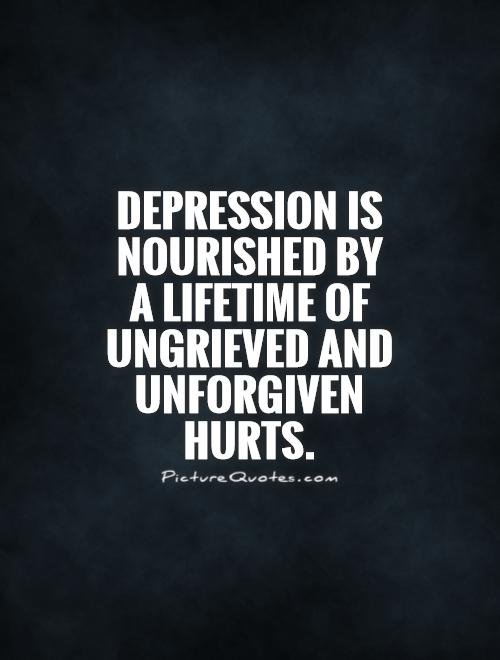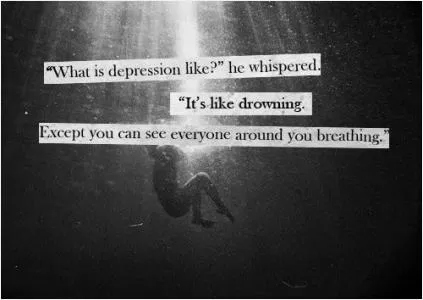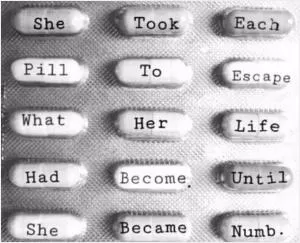
Depression is nourished by a lifetime of ungrieved and unforgiven hurts

Depression is nourished by a lifetime of ungrieved and unforgiven hurts
Depression is a complex and multifaceted mental health condition that can be influenced by a variety of factors, including genetics, brain chemistry, and life experiences. One often overlooked aspect of depression is the impact of unresolved emotional pain and trauma on an individual's mental well-being. The statement "Depression is nourished by a lifetime of ungrieved and unforgiven hurts" highlights the importance of acknowledging and processing past hurts in order to heal and move forward.When we experience emotional pain or trauma, whether it be from childhood experiences, relationships, or other life events, it can leave a lasting impact on our mental and emotional well-being. If these hurts are left unaddressed and unresolved, they can fester and grow, contributing to feelings of sadness, hopelessness, and despair that are characteristic of depression. By not allowing ourselves to grieve and forgive these hurts, we are essentially feeding our depression and allowing it to take hold and control our lives.
Grieving is a natural and necessary process that allows us to process and release our emotions surrounding a loss or trauma. When we do not allow ourselves to grieve, we are denying ourselves the opportunity to heal and move forward. Similarly, forgiveness is a powerful tool that can help us release the anger, resentment, and bitterness that may be holding us back. By holding onto grudges and refusing to forgive, we are allowing the past to continue to have power over us and contribute to our depression.












 Friendship Quotes
Friendship Quotes Love Quotes
Love Quotes Life Quotes
Life Quotes Funny Quotes
Funny Quotes Motivational Quotes
Motivational Quotes Inspirational Quotes
Inspirational Quotes